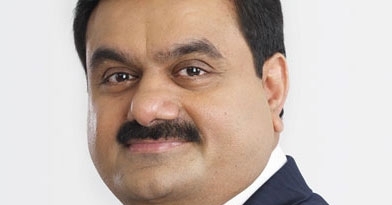Mumbai Airport acquisition to bridge our B2C & B2B biz models: Gautam Adani
September 4, 2020: In a recent LinkedIn blog, Gautam Adani, chairman, Adani Group, said that the recent acquisition of Mumbai and Navi Mumbai airports will “help us redesign the way we will serve our customer base and bridge our B2C and B2B business models.”

September 4, 2020: In a recent LinkedIn blog, Gautam Adani, chairman, Adani Group, said that the recent acquisition of Mumbai and Navi Mumbai airports will “help us redesign the way we will serve our customer base and bridge our B2C and B2B business models.”
On Tuesday, September 1, 2020, Adani Airport Holdings had entered into an agreement to acquire the debt of GVK Airport Developers and 50.50 per cent equity stake in Mumbai International Airport MIAL), which also has 74 per cent equity stake in the proposed Navi Mumbai International Airport.
“The Mumbai International Airport is absolutely world-class and I compliment the GVK Group for having built such an outstanding airport. The addition of the Mumbai International Airport and the Navi Mumbai International Airport to our existing portfolio of 6 airports provides us a transformational platform that will help shape and create strategic adjacencies for our other B2B businesses. This acquisition helps us redesign the way we will serve our customer base and bridge our B2C and B2B business models,” Adani said.
Mumbai & its airport
From a medium to long-term perspective, Mumbai is well on its way to becoming one of the top 5 global metropolitan centres of the 21st century. It is expected to be the nation’s leading airport as well as a core domestic and international hub as passenger traffic across our country grows 5-fold and India builds 200 additional airports to handle over 1 billion domestic and international passengers across the Tier 1, 2 and 3 cities, majority of which will connect to Mumbai. Over this period, India’s top 30 cities are expected to each require two airports and Adani Airports sees itself well-positioned to help build the infrastructure platform required.
A city made for speed is made for success
It was Le Corbusier who had said that a city made for speed is made for success. It is airports that enable this speed and we see airports as the nucleus around which we can catalyze real-estate and entertainment facilities, e-commerce and logistics capabilities, time-sensitive industrial ecosystems, aviation-linked business and put in place other innovative business concepts – many of which will be enabled as a result of the mainstreaming of digitization across every aspect of business and our daily lives. In fact, we live in a world where airports have increasingly come to define the character of a city and become a critical factor for the choice of a business location, tourism, urban economic growth and global economic integration. Our view is that the economic value that the cities of the future create will be maximized around airports.
A powerful engine to drive local economic development
As our nation progresses towards becoming the world’s third-largest economy, the Adani Group’s ability to serve this growth through a rapid build-out of airport infrastructure can be a significant enabler. We, therefore, see airports as a powerful engine to drive local economic development as well as act as a critical lever to help converge the tier 1 cities with the tier 2 and tier 3 cities in a hub and spoke model. This hub and spoke model is fundamental to enable a greater equalization of our increasing urban-rural divide as well as take advantage of the cost arbitrage that exists between the different locations to make us more competitive as a nation. This is critical for the creation of net new jobs. Given our deep infrastructure expertise, we are well-positioned to help make this happen.




